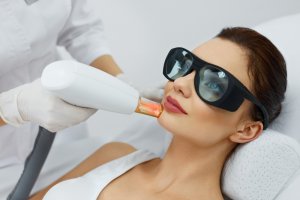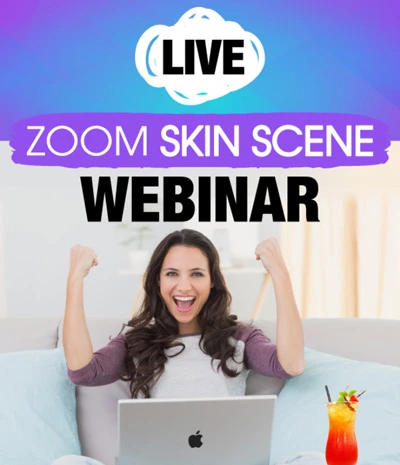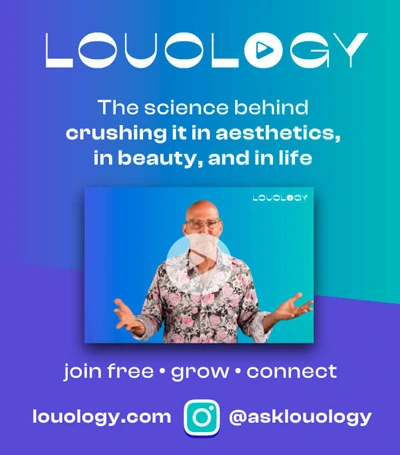4 Facts About Laser Skin Resurfacing

Everyone wants perfect skin, but few are fortunate enough to have it.
Skin concerns such as sunspots, skin discoloration, wrinkles and acne scars may leave individuals with lower self-esteem and a desire to correct their skin concerns.
Fortunately, laser skin resurfacing can help rejuvenate your skin and minimize skin imperfections.
Did you know you can learn this and other cosmetic treatments during laser training at National Laser Institute?
4 Facts About Laser Skin Resurfacing
- When you have laser skin resurfacing makes a difference
Did you know winter is considered “laser season”? Because laser-treated skin is sensitive to sun exposure, laser techs recommend laser treatments during fall or winter months when you spend most of your time indoors and are covered from head to toe.
- Having darker skin does not necessarily prevent you from laser resurfacing
A common misconception among clients is that laser skin resurfacing is only safe for light skin types. While specific cosmetic lasers pose a higher risk for discoloration and cell damage in darker skin, there are safe and effective options for dark skin. Clients with darker skin may consider other options such as radiofrequency or microneedling.
- Different lasers are optimized for different concerns and skin types
There are three categories of laser skin resurfacing devices:
- Ablative lasers work by uniformly affecting the skin. Each pass of the laser will remove another thin layer of skin.
- Non-ablative lasers, on the other hand, cause heat damage to the upper or deeper layers of the skin.
- Fractional lasers are either ablative or non-ablative. This skin resurfacing method involved coaxing the body into responding to fractionated laser light.
At National Laser Institute, you will work with:
- Fractional Lasers. This type of laser breaks up the laser energy into thousands of tiny beams to treat only a fraction of the skin in a particular area, which reduces downtime. Fractional lasers can be ablative or non-ablative, and they are used to treat many age-related blemishes.
- Intense Pulsed Light (IPL). Technically, IPL laser treatments are not lasers, but they are often used to treat similar concerns as lasers like rosacea, acne, sun damage and hyperpigmentation.
- Clients should plan on having multiple treatments
During your training to become a cosmetic laser tech, you will learn that most non-ablative lasers require a series of procedures for the best results. This is one of the trade-offs that come with a minimal-downtime treatment. But once the series of treatments is complete, the effects are long-lasting.
What Can Laser Skin Resurfacing Improve?
Also known as a laser peel, laser vaporization or lasabrasion, laser skin resurfacing can reduce facial wrinkles, scars and blemishes.
The laser is used to send short, concentrated pulsating beams of light at irregular skin. This removes unwanted, damaged skin one layer at a time. Having a targeted approach means fewer problems with hypopigmentation — lightening of the skin.
Laser skin resurfacing removes the outer layer of skin (epidermis) while it heats the underlying skin (dermis). The treatment stimulates the growth of new collagen fibers that produces firm, smooth skin.
This skin resurfacing treatment addresses:
- Fine lines and wrinkles around or under your eyes, forehead or mouth
- Acne scars
- Aged or sun-damaged skin
- Overall skin complexion
Laser Skin Resurfacing Training at National Laser Institute
Did you know you can become a cosmetic laser technician after just two weeks of cosmetic laser training courses from the National Laser Institute?
With over a decade of excellence, we provide you with both classroom education and clinical hands-on training for the most comprehensive training experience.
Our comprehensive laser courses are taught by some of the industry’s leading experts, including cosmetic laser techs, nurses, physicians and skin care specialists with up to 20 years of experience in the field. During didactic (classroom) education, you will learn from up to 13 different instructors alone!
In the classroom, you will learn things like laser biophysics and tissue interaction, patient selection, patient care and more! This will prepare you for your hands-on training.
Your clinical hands-on training will be done in a medical spa environment where you will treat scheduled clients to gain real-world experience. We have a dedicated staff that works around the clock to book paying clients for you to perform treatments on. We like to keep our classes small to provide you with a more intimate and personalized learning experience.
You will have the opportunity to learn cosmetic treatments such as laser hair removal, Intense Pulsed Light (IPL) photofacial, laser tattoo removal, cellulite and fat reduction, radiofrequency skin tightening and more!
Once you complete your laser training, you will feel confident and comfortable to perform a variety of laser treatments in any medical setting!
If you would like to learn more information about National Laser Institute’s course options, give us a call at 1-800-982-6817 or fill out the form on your right.








